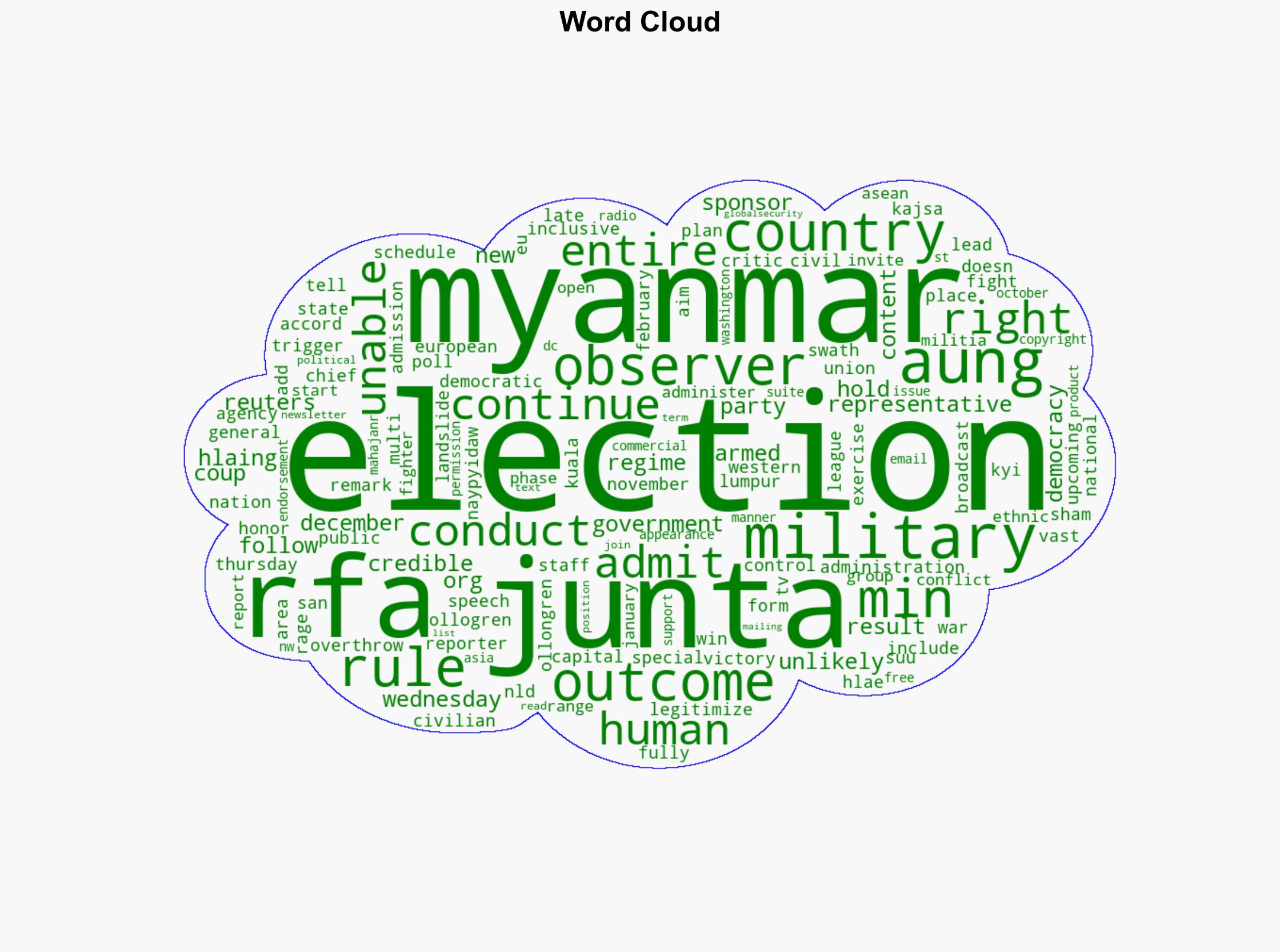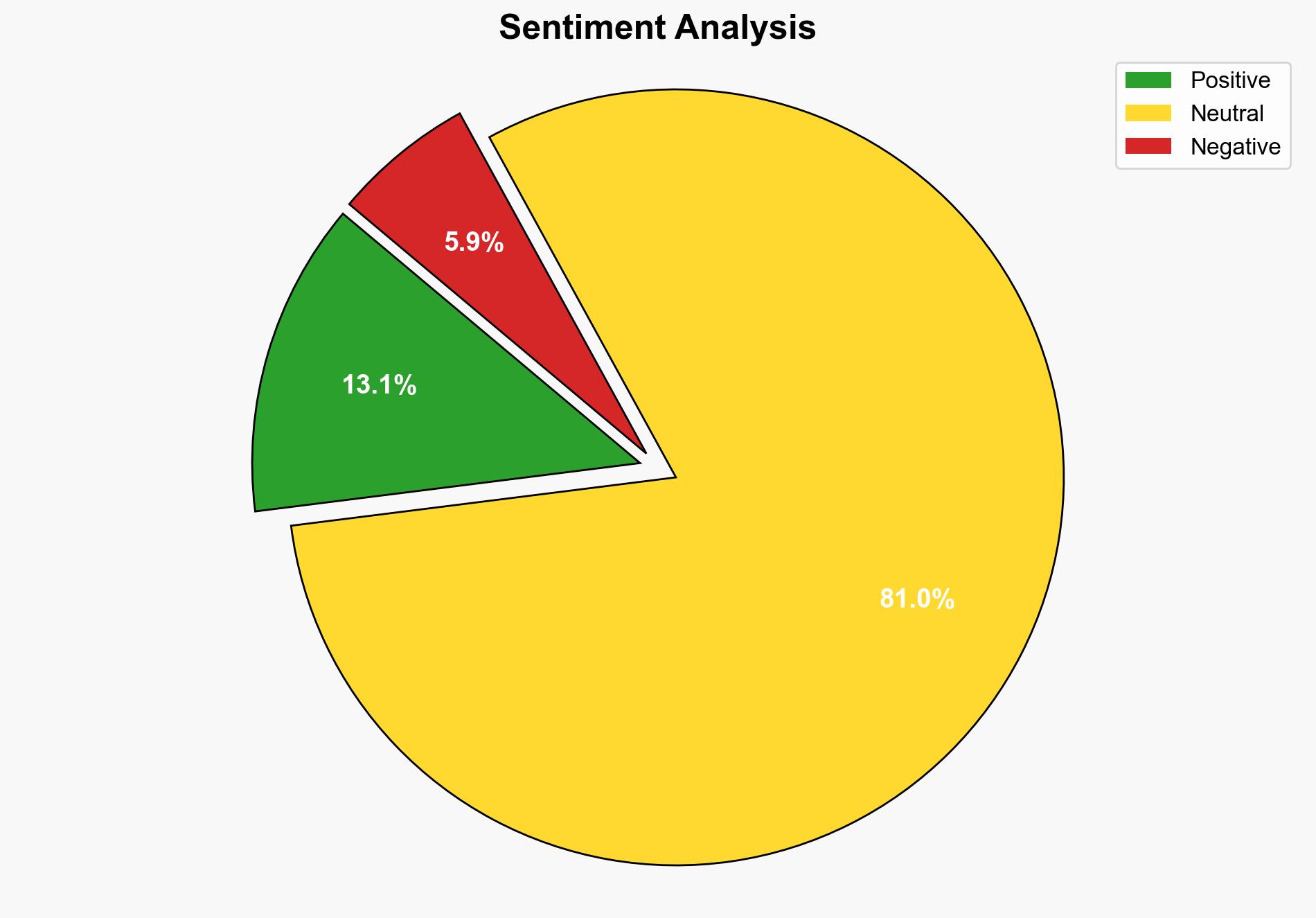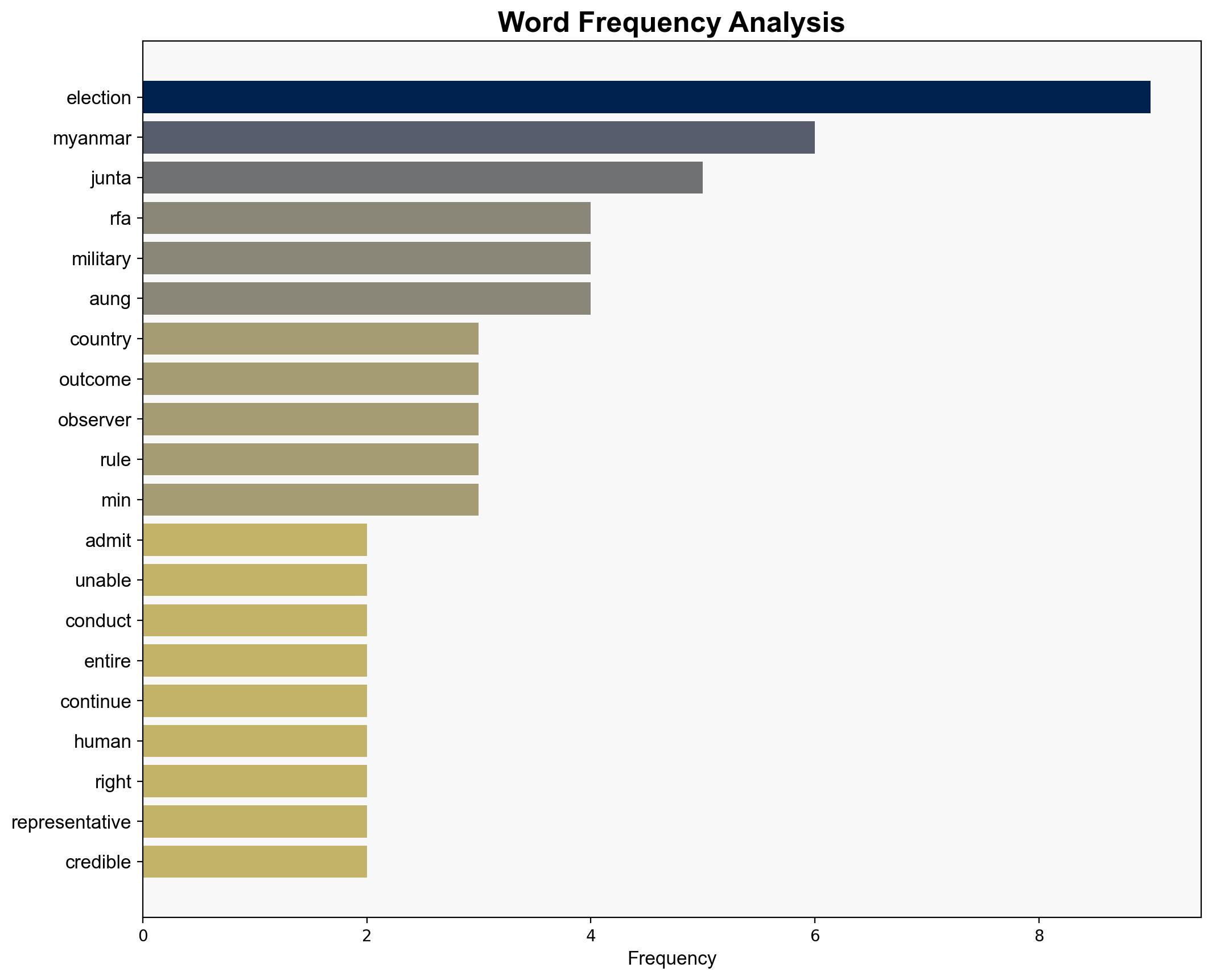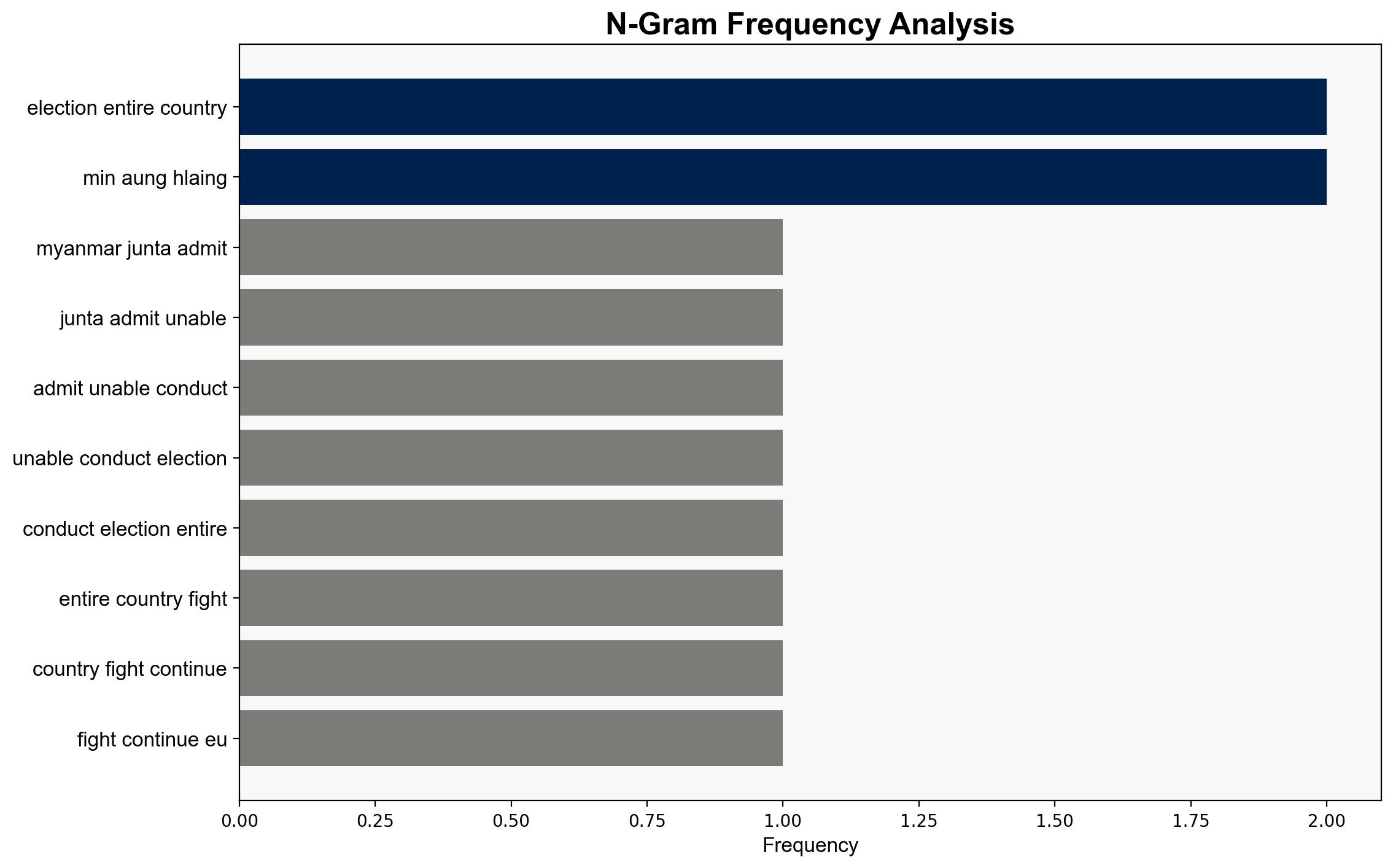Myanmar junta admits it’s unable to conduct election across entire country – Globalsecurity.org
Published on: 2025-10-20
Intelligence Report: Myanmar junta admits it’s unable to conduct election across entire country – Globalsecurity.org
1. BLUF (Bottom Line Up Front)
The Myanmar junta’s admission of its inability to conduct elections nationwide suggests significant internal challenges and external pressures. The most supported hypothesis is that the junta is using the election as a strategic tool to consolidate power despite its inability to control the entire country. Confidence in this assessment is moderate. Recommended action includes increased diplomatic engagement and support for regional stability initiatives.
2. Competing Hypotheses
1. **Hypothesis A**: The junta’s admission is a strategic move to lower expectations and justify a limited election, thereby consolidating power in areas it controls.
2. **Hypothesis B**: The admission reflects genuine logistical and security challenges that prevent a nationwide election, indicating weakening control and potential vulnerability.
Using the Analysis of Competing Hypotheses (ACH) 2.0, Hypothesis A is better supported due to the junta’s historical pattern of using elections to legitimize its rule and the strategic timing of the admission.
3. Key Assumptions and Red Flags
– **Assumptions**: It is assumed that the junta seeks international legitimacy through elections. Another assumption is that the junta maintains control over key regions despite ongoing conflicts.
– **Red Flags**: The junta’s control over information and media could lead to biased reporting. The lack of independent observers raises concerns about election transparency.
– **Blind Spots**: There is limited information on the internal dynamics within the junta and the extent of its control over military forces.
4. Implications and Strategic Risks
The junta’s inability to conduct a nationwide election may lead to increased internal dissent and embolden opposition groups. Regionally, instability in Myanmar could spill over into neighboring countries, affecting economic and security dynamics. The situation may also attract international condemnation, impacting Myanmar’s diplomatic relations.
5. Recommendations and Outlook
- Engage with ASEAN and other regional partners to monitor the situation and support conflict resolution efforts.
- Increase humanitarian aid to affected regions to mitigate civilian suffering and prevent further destabilization.
- Scenario Projections:
- **Best Case**: The junta agrees to international mediation, leading to a more inclusive political process.
- **Worst Case**: Escalation of conflict leads to widespread humanitarian crisis and regional instability.
- **Most Likely**: Limited elections proceed in junta-controlled areas, with continued international condemnation and internal unrest.
6. Key Individuals and Entities
– Min Aung Hlaing
– Kajsa Ollongren
– Aung San Suu Kyi
7. Thematic Tags
national security threats, regional focus, geopolitical instability, election integrity




